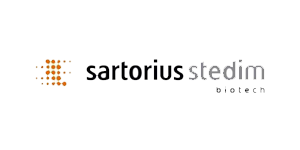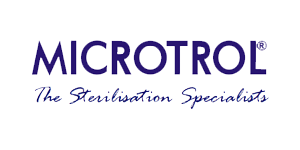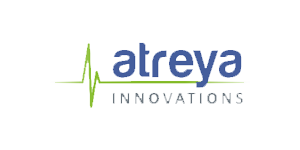
Medical Device Testing: Ensure Patient Safety
Medical Device Testing: Introduction
In healthcare, building trust is pivotal.
When a patient receives a medical device, whether it’s a pacemaker, an MRI machine, or a simple syringe, they trust that it has undergone rigorous testing to ensure their safety. However, this trust is simply not built on blind faith, but on the meticulous process of medical device testing. Explore the critical role of testing in upholding patient safety and the technologies and practices that make it all possible.
The Patient-First Imperative
At the heart of every medical device is a patient, often relying on it for their health, well-being, or even their life. Ensuring their safety is a non-negotiable priority. Medical device testing is the shield that guards against potential risks, providing reassurance to both patients and healthcare professionals.
Rigorous Standards: The Backbone of Testing
Medical device testing adheres to stringent industry standards and regulatory requirements. These standards, set forth by organizations like the FDA and ISO, outline the specific tests and criteria that devices must meet before they can be approved for use. Adhering to these standards is essential in establishing the safety and effectiveness of medical devices.
From Bench to Bedside: Testing at Every Stage
The testing journey begins long before a device reaches a patient. It starts at the design and development stage, where prototypes undergo a battery of tests to evaluate their performance, durability, and safety. This process continues through manufacturing, where each device is meticulously examined to ensure it meets exacting specifications.
Functionality and Reliability: The Core of Testing
Medical devices must perform flawlessly, every time. Functional testing assesses whether a device operates as intended, from its basic functions to its most complex features. Reliability testing, on the other hand, simulates real-world conditions to ensure a device’s performance remains consistent over time.
Durability and Longevity: Standing the Test of Time
In a healthcare setting, devices are subjected to constant use and, at times, harsh conditions. Durability testing evaluates a device’s ability to withstand wear, impacts, and environmental factors. This testing is crucial in ensuring that a device remains safe and effective throughout its lifespan.
Safety in Adverse Conditions: Stress Testing
Medical devices must perform reliably even in less-than-ideal circumstances. Stress testing pushes devices to their limits, subjecting them to extremes of temperature, humidity, and other environmental variables. This ensures that a device will continue to function safely, even in challenging conditions.
Biocompatibility: Ensuring Compatibility with the Human Body
For devices that come into contact with bodily tissues or fluids, biocompatibility is paramount. This testing evaluates whether a device’s materials are compatible with the human body, minimizing the risk of adverse reactions or complications.
Usability and User Experience: Ensuring Accessibility
A device’s effectiveness is intrinsically tied to its usability. Usability testing assesses how easily and intuitively a device can be operated by healthcare professionals and, in some cases, by patients themselves. An intuitive, user-friendly design enhances patient safety and improves overall healthcare delivery.
Post-Market Surveillance: Continuous Vigilance
Even after a device has been approved and deployed, the role of testing doesn’t end. Post-market surveillance involves ongoing monitoring and testing to identify any potential issues that may arise once a device is in widespread use. This continuous vigilance is crucial in maintaining patient safety over the long term.
Accessibility and Inclusivity: Tailoring Devices for All
Patient safety extends to inclusivity. Medical devices should be accessible to individuals with diverse needs, including those with disabilities or unique medical requirements. Testing encompasses features like adjustable settings, clear interfaces, and compatibility with assistive technologies, ensuring that every patient can benefit from these life-saving tools.
Interoperability and Integration: Seamless Healthcare Delivery
In the modern healthcare landscape, medical devices often work in conjunction with other technologies and systems. Interoperability testing ensures that devices can communicate effectively with electronic health records, monitoring systems, and other healthcare infrastructure. This seamless integration enhances patient safety by enabling timely and accurate data exchange.
Cybersecurity: Protecting Against Digital Threats
In an increasingly connected healthcare environment, cybersecurity is a critical consideration. Medical devices are vulnerable to cyber threats that could compromise patient safety. Rigorous testing assesses a device’s resilience to cyberattacks, ensuring that patient data remains secure and that device functionality cannot be compromised by malicious actors.
Human Factors Engineering: Designing for Real-World Use
A well-designed medical device takes into account the complex interplay between technology and human behavior. Human factors testing evaluates how users interact with a device in real-world scenarios. This includes considerations like ergonomics, visual displays, and user interface design. By optimizing these factors, we enhance the overall safety and effectiveness of medical devices.
Emergency Response and Fail-Safe Mechanisms: Preparedness in Crisis
In critical situations, medical devices must perform reliably. Testing evaluates a device’s response in emergency scenarios, assessing fail-safe mechanisms and backup systems. This ensures that even under duress, a device can be relied upon to provide the necessary care and support.
Environmental Impact: Sustainable Healthcare Solutions
Sustainability is an increasingly important consideration in healthcare. Testing extends to evaluating a device’s environmental impact, including factors like energy consumption, materials sourcing, and end-of-life disposal. By choosing devices with a lower environmental footprint, healthcare providers contribute to a more sustainable and ecologically responsible healthcare system.
Training and Education: Empowering Users for Safe Operation
Effective training is an integral part of patient safety. Testing encompasses the development and evaluation of training materials and programs for healthcare professionals and end-users. By ensuring that users are proficient in the safe and proper operation of medical devices, we reduce the risk of errors and enhance overall patient safety.
International Harmonization: Bridging Global Standards
In a global healthcare landscape, harmonizing testing standards is essential. Collaborative efforts among regulatory agencies and industry stakeholders work towards aligning testing protocols and requirements on an international scale. This harmonization ensures that medical devices meet consistent, high-quality standards regardless of where they are manufactured or deployed.
Prewel Labs,in Bengaluru, India assures complete adherence and compliance towards standardized Pharma Testing, Medical Device Testing, and Utilities Testing prioritizing and safeguarding patient health always.
Get Free Consultation with Certified Medical Device Testing Lab in Bangalore
A Future of Safe, Effective Healthcare
In healthcare, medical device testing is the sole conductor, orchestrating the interplay between technology, human expertise, and patient well-being. It’s an unwavering commitment to patient safety and the pursuit of excellence in healthcare delivery. Through rigorous testing, forge a path towards a future where every medical device is assured of safety and serves as a catalyst for healing.
Our Endeavour
We at Prewel Labs, headquartered in Bengaluru, are an accredited testing laboratory (NABL Accredited) and a unit of IncepBio Pvt. Ltd specializing in quality testing of Water, Food, Indoor air, and Medical devices.
We at Prewel Labs, headquartered in Bengaluru, are an accredited testing laboratory (NABL Accredited) and a unit of IncepBio Pvt. Ltd specializing in quality testing of Water, Food, Indoor air, and Medical devices.
Please send us a message or call us at +91 6366942390 and We’ll be there to ensure that your medical devices meet stringent safety and quality standards.
Connect with our Medical Testing experts in Bangalore!
Also extending our services to Pharma Testing, Medical Device Testing, Utilities Testing, and Indoor Air Quality Testing, all aimed at safeguarding social health demonstrating our commitment to excellence in testing and assuring quality for a better future.
























